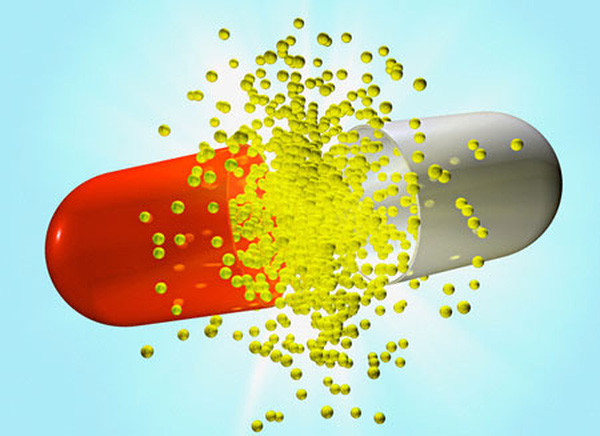Overview of ARV drugs and their effects on HIV treatment
ARV is a treatment for people with HIV, which reduces the development of HIV and slows the HIV phase to AIDS. The use of ARV for PLHIV is seen as one of the positive measures to help PLHIV improve their health and prolong their lives.
What is ARV?
ARV stands for Antiretrovaral, a drug designed to reduce the proliferation of HIV in the body. If antiretroviral treatment is effective, it can slow the complete progression of AIDS for many years, reducing the risk of transmission and increasing the quality of life of people with HIV / AIDS. ARV drugs are encouraged to use in combination to prevent drug formation.
Groups of ARV drugs used in Vietnam:
- Nucleoside and nucleotide reverse transcriptase inhibitors (NRTI).
- The reverse transcriptase inhibitor group is not a nucleoside (NNRTI).
- Protease inhibitor group (PI).

ARV is a drug designed to reduce HIV proliferation.(Artwork. Internet source).
Effect of ARV
- Inhibiting HIV replication and suppressing the lowest amount of virus in the blood. ARV drugs do not cure HIV completely.
- Immune rehabilitation, reducing the risk of morbidity and mortality from opportunistic infections in HIV-infected patients.
- Improve quality of life and increase life time for patients.
- Preventing the progress of HIV to AIDS in HIV-infected patients.
Principles for using ARV
- ARV treatment is part of the overall health, psychological and social care and support services for people with HIV / AIDS.
- Antiretroviral therapy is primarily an outpatient treatment and is indicated when the patient has clinical or laboratory criteria and the patient is ready for treatment.
- Any treatment regimen must have at least 3 drugs. ARV treatment is lifelong treatment, patients must adhere to absolute treatment to ensure effectiveness and avoid drug resistance.
- HIV-infected people who receive ARV treatment must still apply preventive measures to infect others.
- HIV-infected people who receive ARV treatment when their immune status is not restored need to continue preventive treatment of opportunistic infections.

HIV treatment counseling.(Artwork. Internet source).
Depending on the availability of the drug, the condition of the patient, the specialists will select compatible treatment regimens according to the formula above.
When to treat ARV?
- ARV treatment for HIV-infected patients is based on the number of CD4 cells (white blood cells commanded).
- The average CD4 score of an HIV-negative person usually ranges between 500 and 1200 cells / mm3, but some people with this index are higher or lower than normal due to birth.
If there is a CD4 test, specify ARV treatment when:
- People with HIV infection in clinical stage 4, regardless of the number of CD4 cells.
- People with HIV infection in clinical stage 3 with CD4
- People with HIV infection in clinical stage 1 and 2 with CD4
- If CD4 test is not available, ART should be indicated when HIV infected people are in clinical stage 3, 4.
Signs that patients have responded to antiretroviral therapy
- Improved health: increased appetite, increased appetite and better appetite, better physical, psychological well-being, patients have more strength to perform daily activities.
- Symptoms related to HIV disease improved.
- Pre-existing opportunistic infections improve, reducing the incidence and severity of opportunistic infections.
Side effects of ARV drugs

Treatment of antiretroviral drugs for people with HIV is lifelong treatment.
Other toxicity and side effects of ARV may be encountered during treatment such as:
- Peripheral neuropathy : Expression of peripheral sensory disorders, mainly limbs, difficulty walking. It is common to use d4T, ddI, non-nucleosid antiretrovirals. Need to use high doses of vitamin B, if severe must replace drugs.
- Pancreatitis : Meet when using ddI, d4T. The drug should be stopped immediately and replaced with ZDV.
- Redistribution of fat : When using ddI, proteases inhibitor. Expression of fat accumulation in the chest, abdomen, back, nape; atrophy of fat tissue in the arms, legs, buttocks, cheeks.
- Hepatotoxicity : NPV, EFV, ZDV and proteases inhibitors are very toxic to the liver, damaging liver cells, increasing liver enzymes. The drug should be discontinued if the liver enzymes increase 5 times normal.
- CNS toxicity: EFV is confusing, psychotic, depression. It is necessary to stop and replace the drug when the patient has neuropsychological problems.
Treatment of antiretroviral drugs for people with HIV is lifelong treatment . therefore, the most appropriate time for HIV-infected people to start treatment is when indicated by a doctor and when actually ready to participate in treatment. ARV reduces the proliferation of HIV virus in the body, reduces the process from HIV to AIDS, restores the immune system to the body. ARV treatment is a long and complex process so patients need to follow the doctor's treatment regimen correctly.
- What attention should be paid to treatment with anti-HIV drugs?
- Identify the drugs and their effects
- The truth about drugs that destroys even more terrifying bodies than
- The unpredictable effects of muscle strengthening drugs
- Drinking lots of unnecessary drugs can lead to death
- Medicine is required for HIV-infected children
- What is ketamine? How harmful is it?
- Japanese medicine has a positive effect on Ebola treatment
- To not use the wrong medicine
- This is how science uses sperm to ... treat cancer
- Grain-making scientists carry drugs for cancer treatment
- The new method helps shorten the duration of treatment for TB
 Green tea cleans teeth better than mouthwash?
Green tea cleans teeth better than mouthwash? Death kiss: This is why you should not let anyone kiss your baby's lips
Death kiss: This is why you should not let anyone kiss your baby's lips What is salmonellosis?
What is salmonellosis? Caution should be exercised when using aloe vera through eating and drinking
Caution should be exercised when using aloe vera through eating and drinking